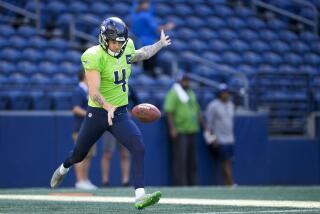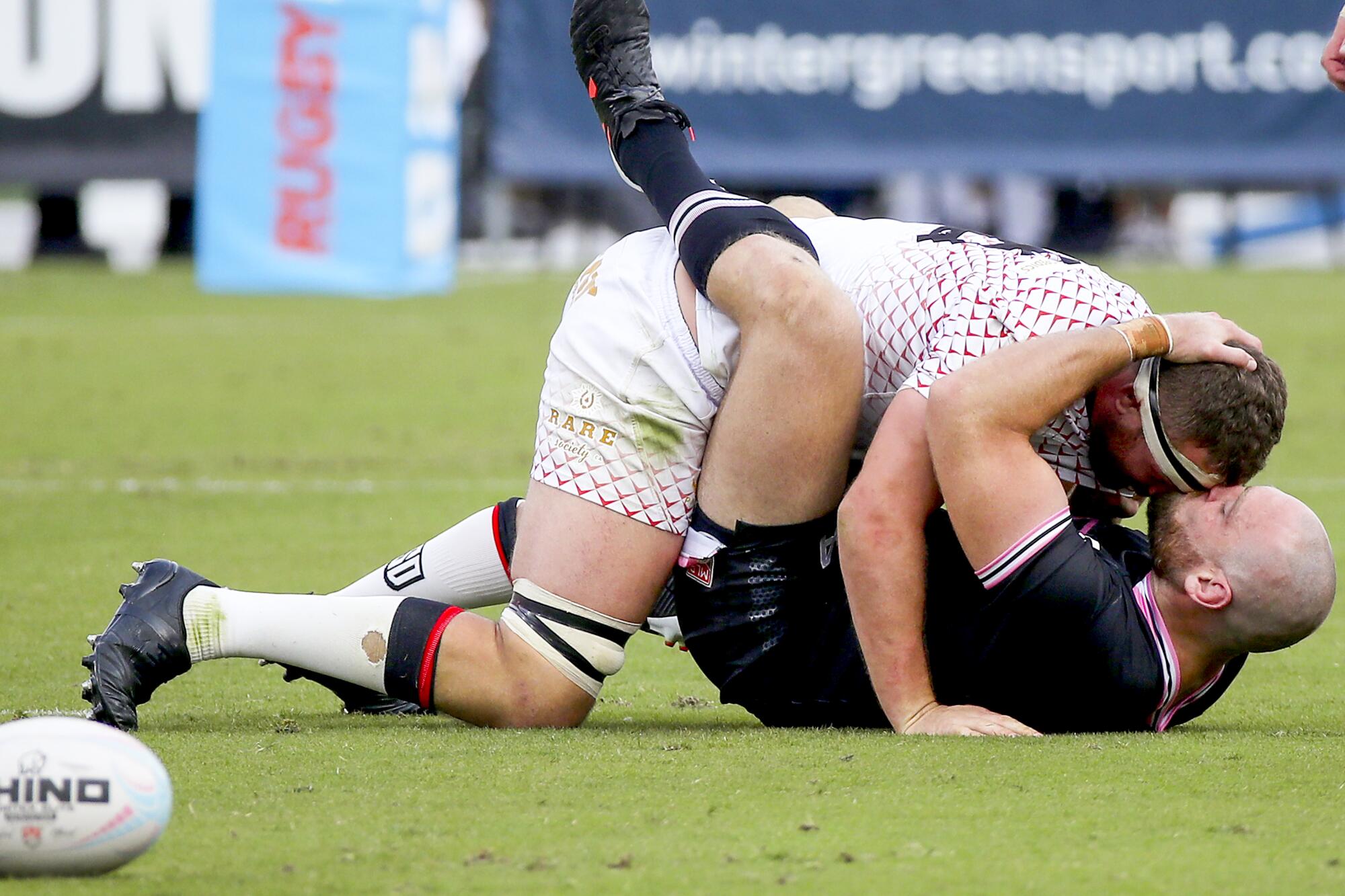
- Share via
Did you know Los Angeles has a professional rugby team? I’m not a big sports fan , but it looked visually interesting. This is what I learned after following the team this season.
Some observations:
A touchdown is called a try and worth five points.
A rugby team consists of 15 brawny guys who play tackle football, minus the forward pass, in soccer uniforms.
Many players, amazingly, still have their front teeth.
Raw facial strawberry scrapes and cauliflower ears won’t get you on the injured list but will earn you pitch cred — and get your photo taken by me.
Rugby has followings throughout the former British Empire and burgeoning appeal in the the United States. Youth participation reportedly grew 350% between 2004 and 2011.
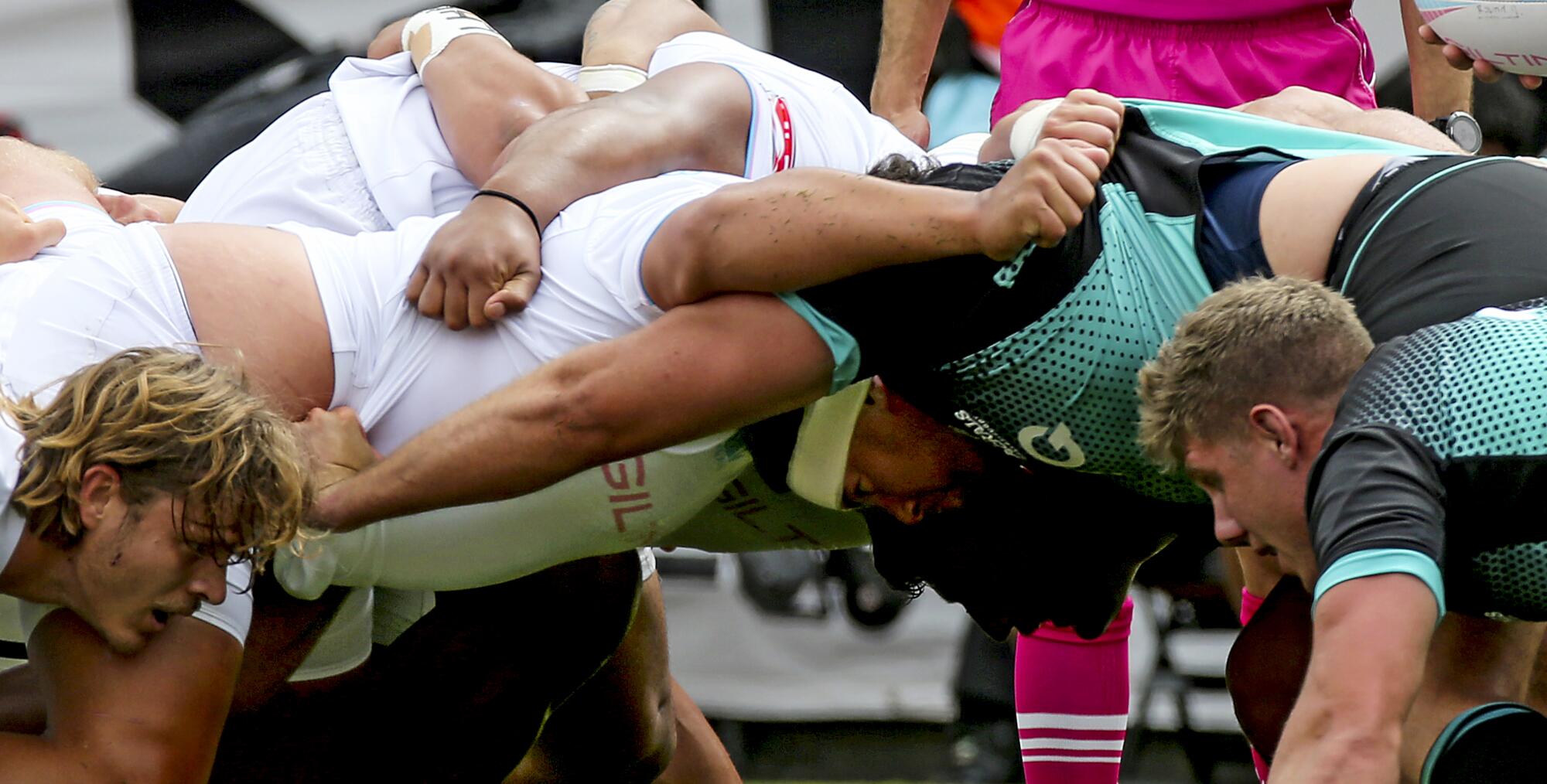
The ball is oval, has no laces and resembles the football Lucy holds for Charlie Brown.
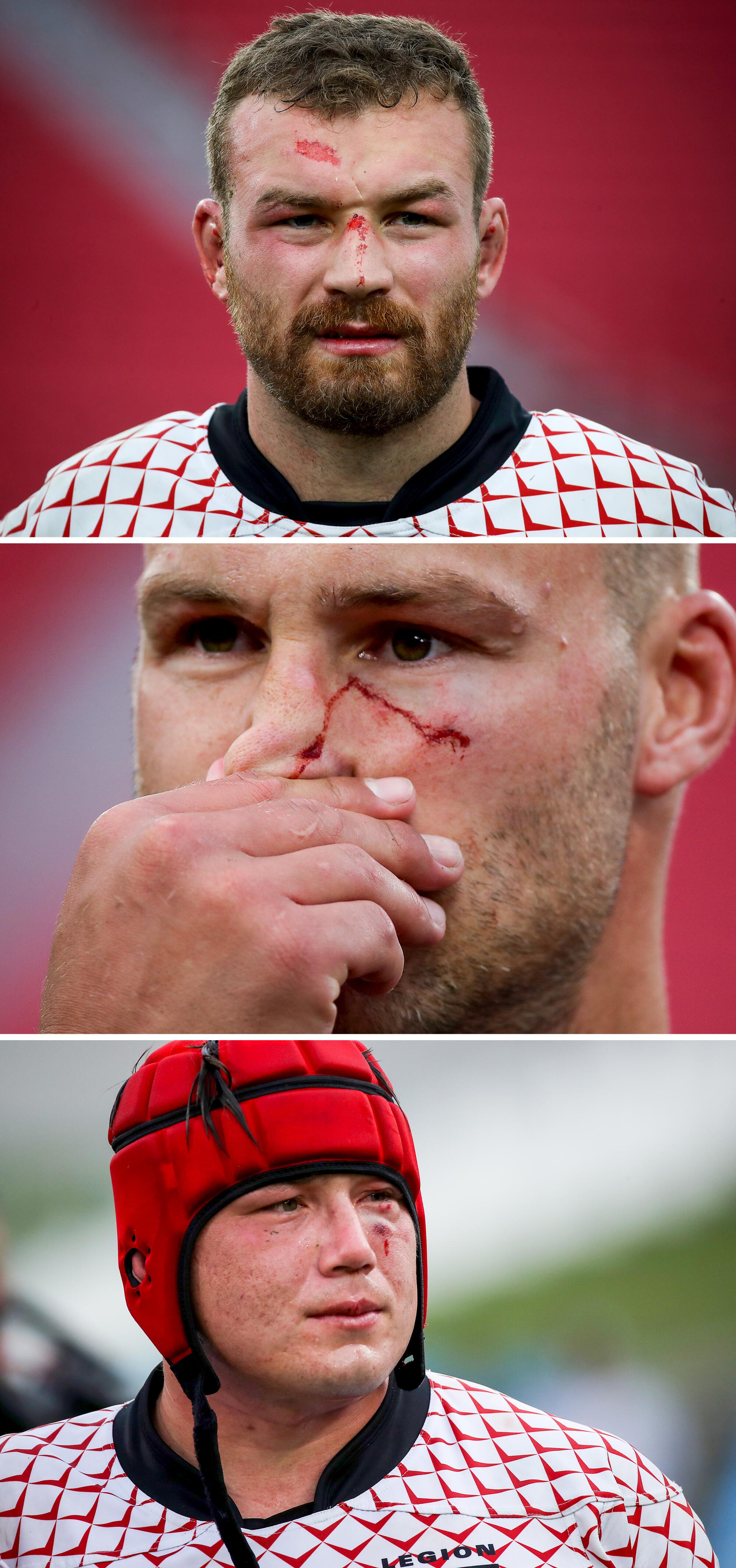
Rugby supposedly is simple, though I had trouble with the brogue spoken on instructional YouTube videos. I imagine it hasn’t changed much since Neanderthals fought Cro-Magnons for a dinosaur egg, thus creating the game.
The action goes nonstop for two halves played over 80 minutes. It’s entertaining.
The L.A. team is called the “Giltinis,” a cross between the name of owner Adam Gilchrist and the drinks we know as martinis. Gilchrist, an Australian physical fitness entrepreneur, also owns the pro rugby team in Austin, the “Gilgronis.” Ownership promises to mass market alcoholic Giltinis beverages soon.
The team plays in the cavernous L.A. Memorial Coliseum and draws sparse crowds. No marching bands, no cheerleaders and limited merchandise. A lone bagpiper beneath the historic east peristyle might be a nice, inexpensive add.
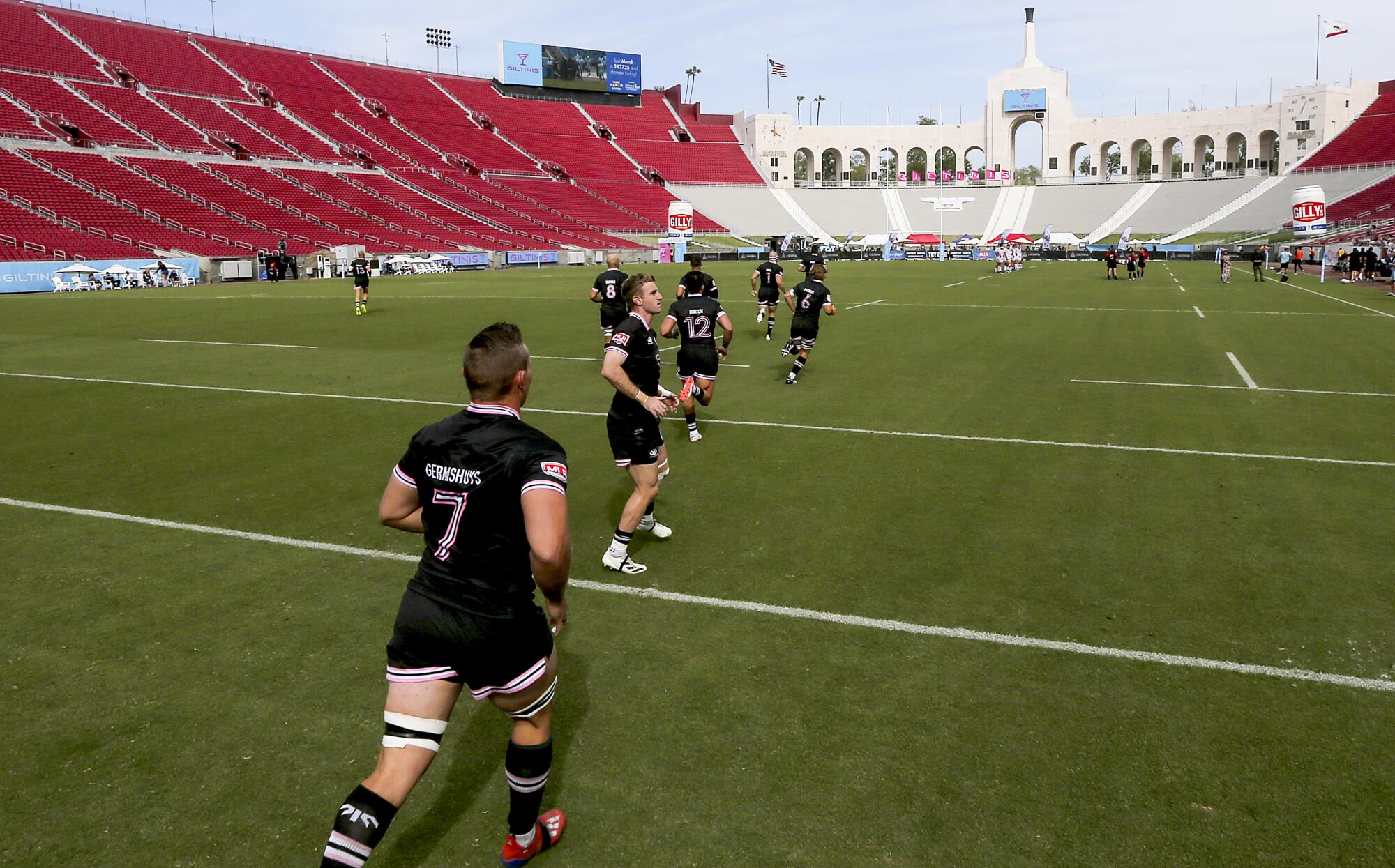
Once a runner is down, the ball is handed off to another player, and the rough and tumble continues. Unlike football, rugby has no huddles, no platooning of special players, no time wasted watching huge linemen lumber to the line of scrimmage as a 40-second play clock winds down. No TV timeouts.
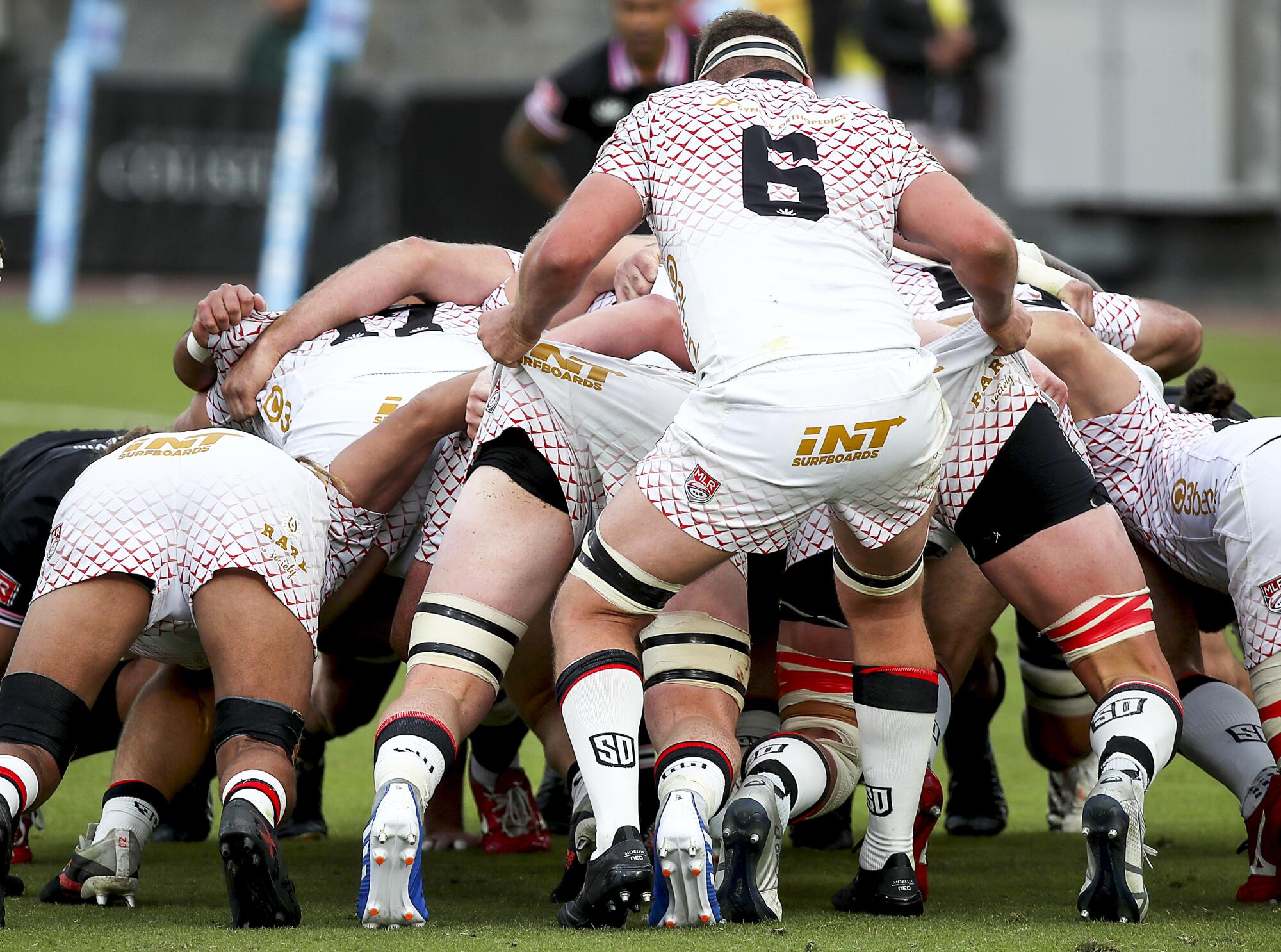
The game’s main formations are aptly called the lineout, the maul and the scrum.
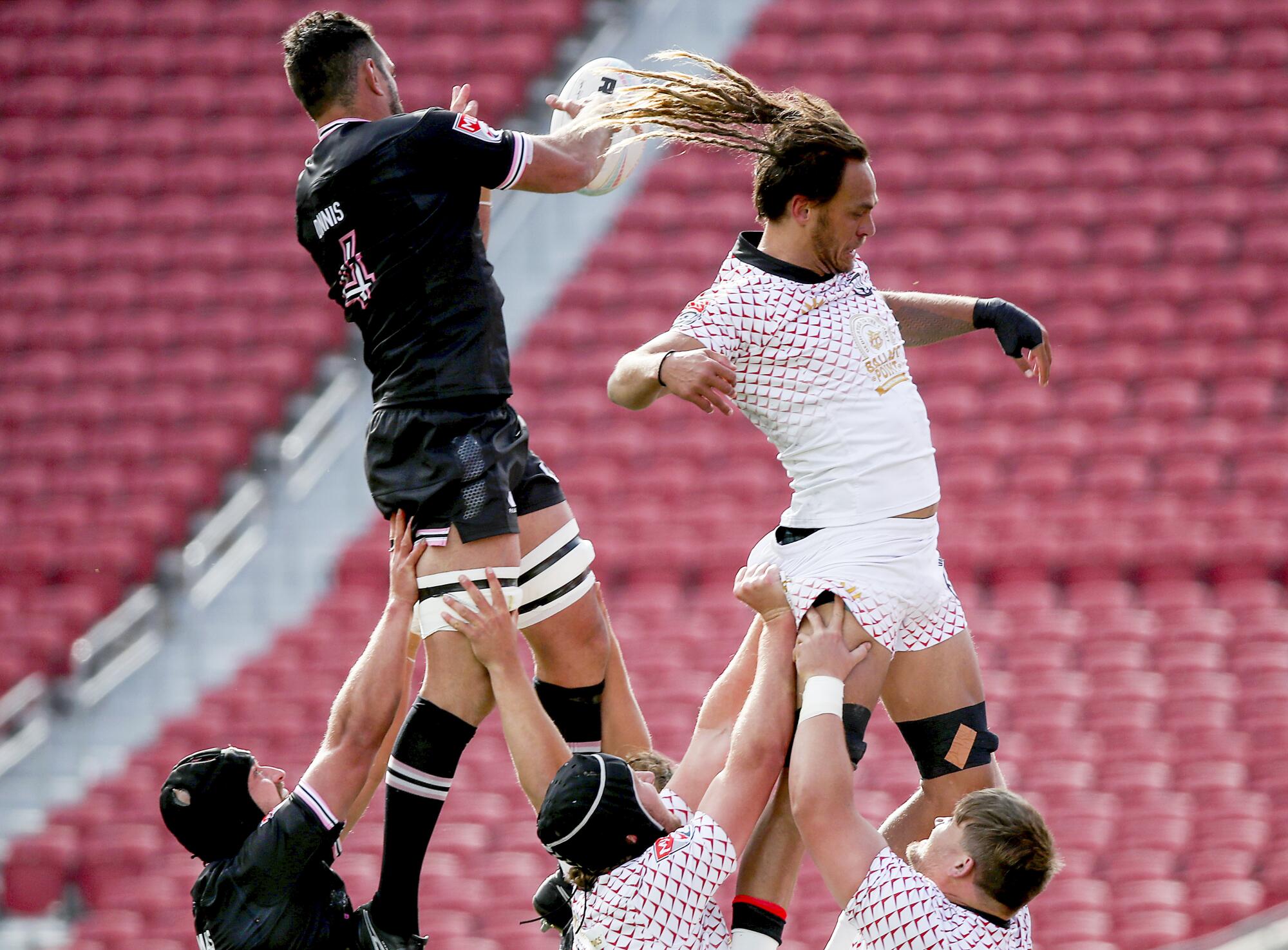
Forward passes are banned, and the action sometimes resembles “The Play” in the 1982 Cal-Stanford game. You may recall the Golden Bears beat the Cardinal with a series of laterals that incredibly ended in a touchdown amid the Stanford marching band, which prematurely stormed the field.
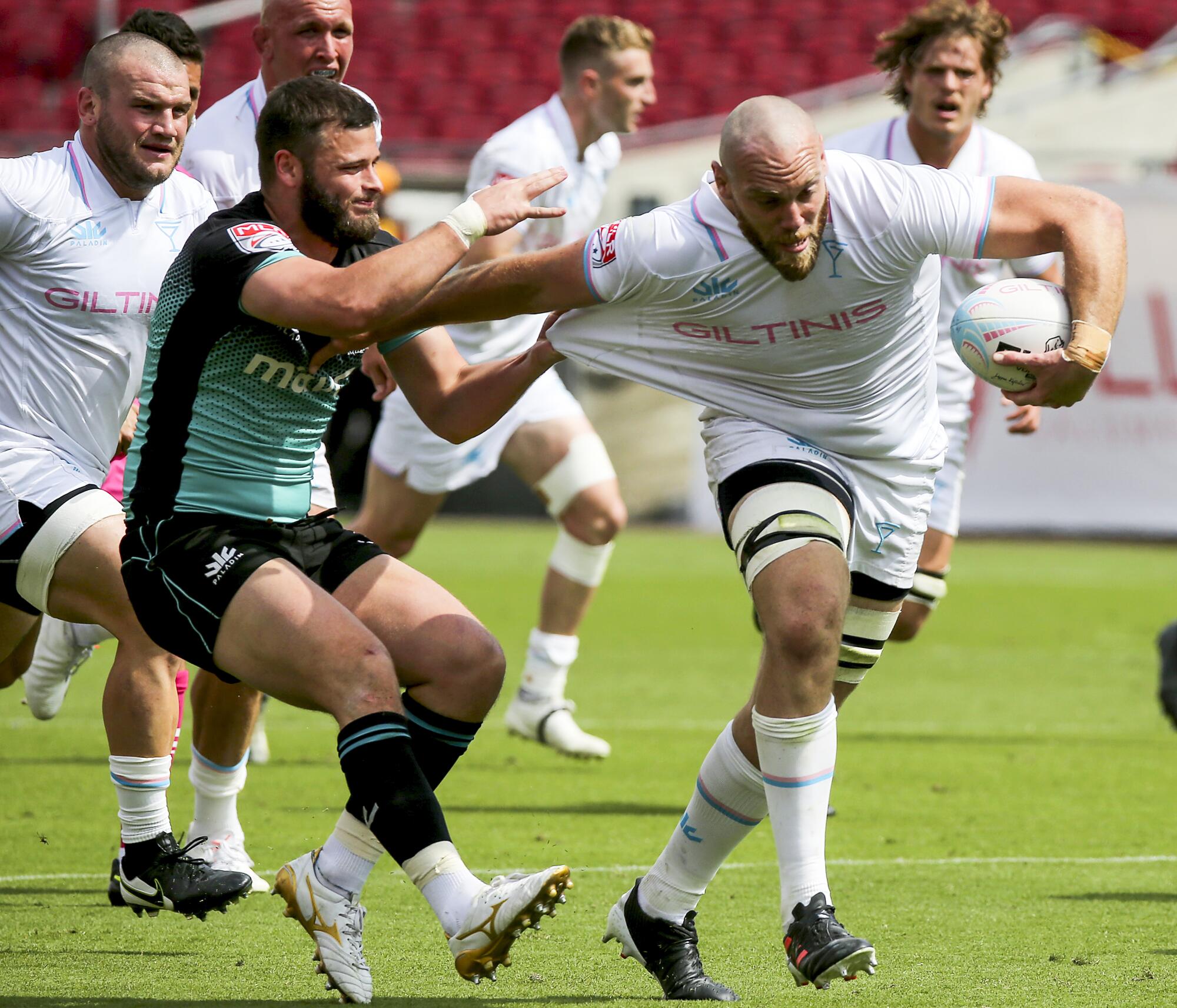
My main takeaway: Rugby is a jolly good spectacle. But the Giltinis’ season ended abruptly after an 11-4 regular-season record. Major League Rugby announced last week the Austin Gilgronis were disqualified for the playoffs due to failing to cooperate with a league investigation into potential salary cap violations. The Giltinis, who like the Gilgronis are owned by Australian Adam Gilchrist, were booted from the playoffs for conduct deemed detrimental to the league. Major League Rugby has not commented on or confirmed reports that the Giltinis’ threat to withdraw from the playoffs unless the Gilgronis were reinstated triggered the removal of both teams from the postseason.
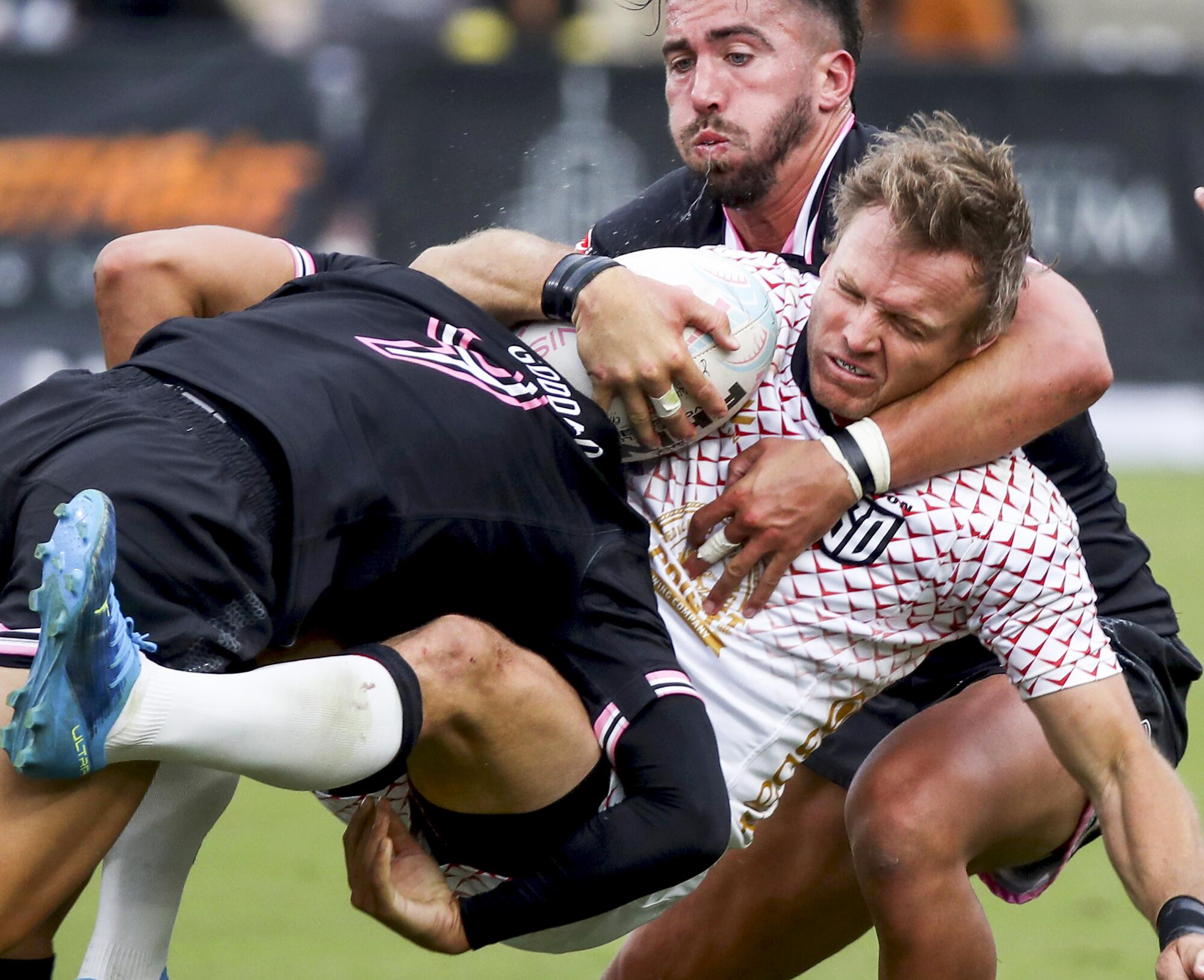
Big guys crashing into each other without much body protection makes for interesting, Romanesque amusement. Maybe the next league franchise should be called The Neros.
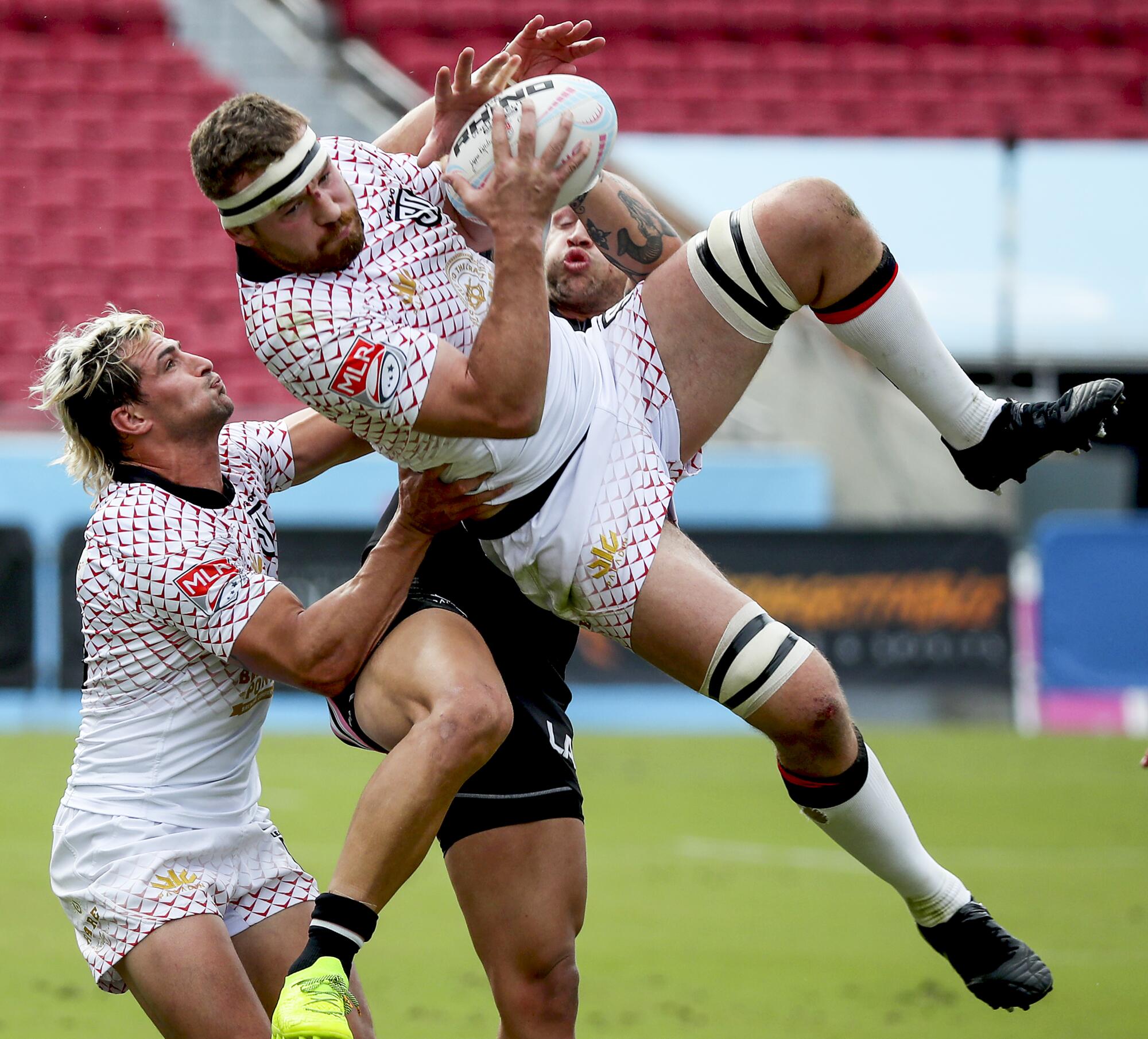
Rugby players perform in the flesh. By comparison, football players look almost robotic while clad in pads from head to toe. Like football, rugby demands physical violence. This you clearly see on the faces of players battling in the scrum.
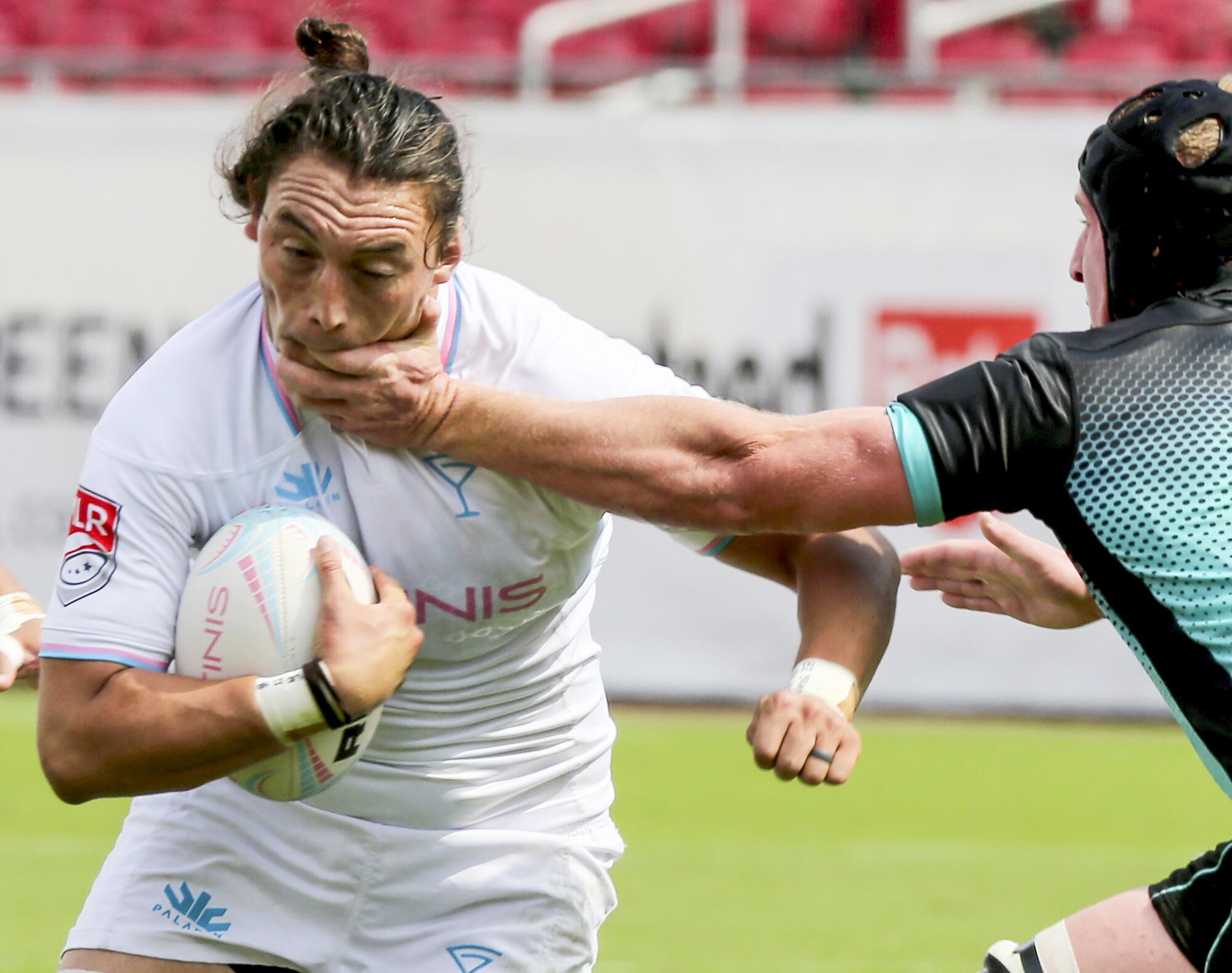
More to Read
Go beyond the scoreboard
Get the latest on L.A.'s teams in the daily Sports Report newsletter.
You may occasionally receive promotional content from the Los Angeles Times.



